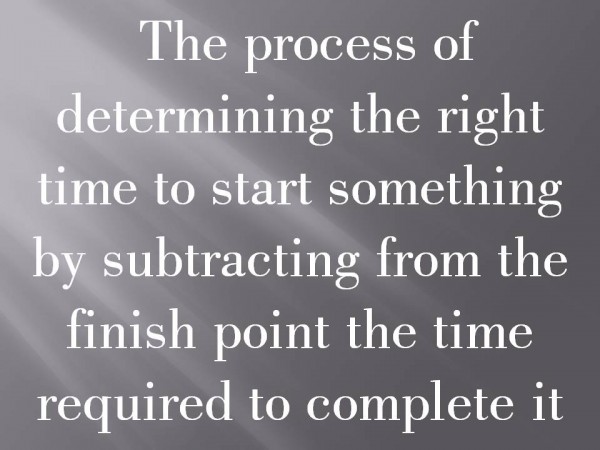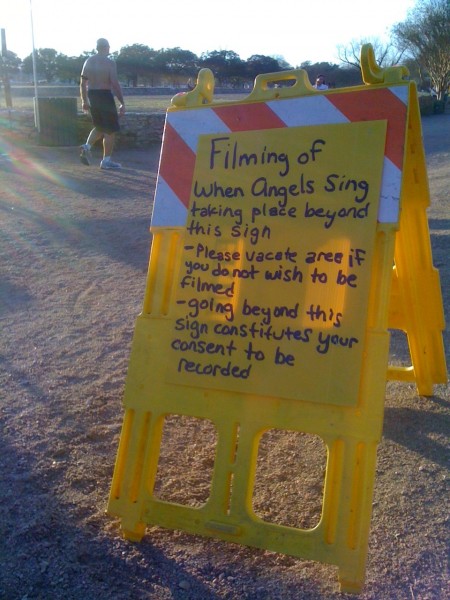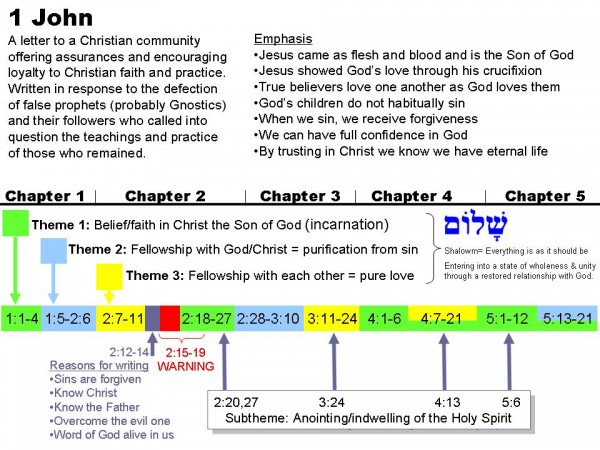G.O.S.P.E.L
Just watch and try to not be amazed at the simplicity of the Good News of Jesus Christ our Messiah.
Parable of the Hidden Treasure
Summary: The traditional interpretation of the parable of the Parable of the Hidden Treasure describes the value of the kingdom of heaven (treasure) and the process by which one acquires that kingdom (sell everything). But there is more to this short parable, when placed in context and in light of all teachings of Jesus the interpretation gets turned on its head. Jesus sold everything and bought us (the treasure). (more…)
Should Christians Pray for an NFL Lockout?
In this month’s issue, Sports Illustrated polled die hard football fans to gauge the mood on the potential NFL Lockout. The poll conducted by market research firm M&RR found that most believed a deal would be reached and there would be a full NFL season. But if there isn’t, the poll listed the activities that would take the place of football:
Half of NFL fans (47.5%) say they would watch more non-sports TV and 61.2 percent would watch more of other televised sports without the NFL season. Fans would also spend more time surfing the internet (56.1%), with significant others (45.1%), doing yard work chores (43.6%), playing video games (33.5%) and at church (13%).
 ONLY 13% will go to church! That will be the easy interpretation most people will make and I think a misguided one.
ONLY 13% will go to church! That will be the easy interpretation most people will make and I think a misguided one.
Consider this, 111,000,000 people viewed the Super Bowl this year and if the same percentage as those polled go to church next year then 14,430,000 people will be in church instead. Even if you take a single Sunday night game like the Cowboys vs Eagles with 25,300,000 viewers then 3,289,000 people would be in church.
I like football and hope the players get taken care of during the negotiations. There are some very real physical and fiscal issues that must be resolved however, if we can get more people into church (and further spread the gospel)…I’ll take it.
Are You Talking To Me? Repentance Theme in Luke 15
Overview: Luke chapter 15 records an exchange between Jesus and some Pharisees who were critical of him because he “…welcomes sinners and eats with them.” He takes their criticism head-on with three parables, one about a good shepherd finding his lost sheep, another about a woman finding her lost coin, andl one about a loving father rejoicing over the return of a lost son. In his message, Jesus communicates his theology of purpose, grace, and joy. The theme often overlooked in his stories and in modern Christianity is the theology of repentance, the theme that brought the most joy in each story and the action to which he was calling the Pharisees.
Found in Translation
In a random survey by The Christian Chronicle, more than 1,100 readers responded to this question: “What Bible version do you prefer to read?”
New International Version: 41.5%
New American Standard Version: 17.1%
New King James Version: 10.3%
English Standard Version: 9.5%
King James Version: 5.8 %
Revised Standard/New Revised Standard Version: 4.8 %
New Living Translation: 3.6%
Today’s New International Version: 2.3%
‘The Message’: 2.2%
Other: 2.2%
Holman Christian Standard Bible: 0.5%
Contemporary English Version: 0.4%
Common English Bible: 0.1%
New American Bible: 0.1%
Reading in the Ekklésia
NOTE: This post was originally published as a bulletin article and on the merkelchurchofchrist.org blog
“ [Jesus] went to Nazareth, where he had been brought up, and on the Sabbath day he went into the synagogue, as was his custom. He stood up to read, and the scroll of the prophet Isaiah was handed to him.” Luke 4:16-17 (NIV)
The congregational reading of scriptures in synagogues was a foundational part of Jewish life when Jesus was growing up, a custom carried on in the early church of Christ. There were practical reasons for public reading the scriptures; because each copy was hand written (that’s what manuscript means), communities of believers had to share limited manuscripts or in some cases, like letters from Apostles, share with other communities.
 The invention of the printing press and subsequent printing of the first Bible in the 1450s led to many positive advances in Christianity like the reformation movement and personal Bible study. However, the printed Bible did not change Paul’s instructions concerning the conduct of Timothy and the early church:
The invention of the printing press and subsequent printing of the first Bible in the 1450s led to many positive advances in Christianity like the reformation movement and personal Bible study. However, the printed Bible did not change Paul’s instructions concerning the conduct of Timothy and the early church:
“…devote yourself to the public reading of Scripture, to preaching and to teaching.” 1 Timothy 4:13(NIV)
Beginning this Sunday we will incorporate scripture reading into our morning worship assembly (ekklésia). Like the early church we will hear the Word of God as one body and one heart. I encourage you to bring your Bibles and follow along as we begin reading the Gospel of John. We will be using New International Version which, according to a recent survey, is the translation most used in churches of Christ.
“Blessed is the one who reads aloud the words of this prophecy, and blessed are those who hear it and take to heart what is written in it, because the time is near.” Revelation 1:3 (NIV)
Shalom
Beautiful Teachings of Jesus
If I had seen a Christian living what Christ taught, then I myself may have followed and become a believer in the beautiful teachings of Jesus. Mahatma Gandhi
The Lost Art of Backward Planning
Jesus had a plan…and he executed it right on time.
As the time approached for him to be taken up to heaven, Jesus resolutely set out for Jerusalem. Luke 9:51 (NIV)
Short of the divine knowledge Jesus possessed, few of us would be able to deliver exactly on time with as far to travel and as many things to do. Along the way he taught parables, eased Martha to the better choice, confronted demons, expressed woes to the pharisees, healed people, dined with his disciples, and prayed all night before being arrested…right on time.
Granted, the things we do day-to-day don’t have eternal consequences for all of humanity, but why do we seem to always miss deadlines, cram all night to study or finish a project, or flat out miss deadlines? We’ve lost the art of backward planning.
 Backward planning is the process of determining the right time to start something by subtracting from the finish point the time required to complete it .
Backward planning is the process of determining the right time to start something by subtracting from the finish point the time required to complete it .
Here’s a simple example: It takes 2 hours to drive to your mothers and you need to be there by 7:00pm. Subtract 2 hours from 7pm and you need to leave at five. WAIT, WAIT…don’t stop reading, it gets better.
What we fail to do is apply this simple concept to more complex projects like the yearly report, your masters degree thesis, or even family panning. Here’s some simple steps to backward plan your next project.
- Determine the finish point
- List all tasks that must be done in order
- Estimate the length of each task
- Subtract each length from the finish point
Running Faster for the Camera
 I was nearing the end of my semi-routine run along Lady Bird Lake in Austin Texas when on the trail in front of me was a yellow sign announcing the filming of the movie “When Angels Sing” and warned that traveling beyond the sign “constitutes your consent to be recorded.” Naturally I did what most American men would do; I pepped up my step, fixed my posture, and ran on through hoping for a split-second opportunity to tell my daughters “THERE I AM” in a movie theater. In the small (microscopic) chance I make it onto the big screen my daughters will see an image of an athlete but miss the reality of their father gasping for air just off screen. What they see was temporary, the unseen is real.
I was nearing the end of my semi-routine run along Lady Bird Lake in Austin Texas when on the trail in front of me was a yellow sign announcing the filming of the movie “When Angels Sing” and warned that traveling beyond the sign “constitutes your consent to be recorded.” Naturally I did what most American men would do; I pepped up my step, fixed my posture, and ran on through hoping for a split-second opportunity to tell my daughters “THERE I AM” in a movie theater. In the small (microscopic) chance I make it onto the big screen my daughters will see an image of an athlete but miss the reality of their father gasping for air just off screen. What they see was temporary, the unseen is real.
I’m reminded of Paul’s message to the church in Corinth who must have been going through spiritual battles causing them to lose sight of greater rewards. The church had been focusing on an image they thought was real and losing heart in the process. Paul is telling them to look just off screen at the eternal glory that is unseen but oh so real.
Therefore we do not lose heart. Though outwardly we are wasting away, yet inwardly we are being renewed day by day. For our light and momentary troubles are achieving for us an eternal glory that far outweighs them all. So we fix our eyes not on what is seen, but on what is unseen, since what is seen is temporary, but what is unseen is eternal. 2 Corinthians 4:16-18 (NIV)

